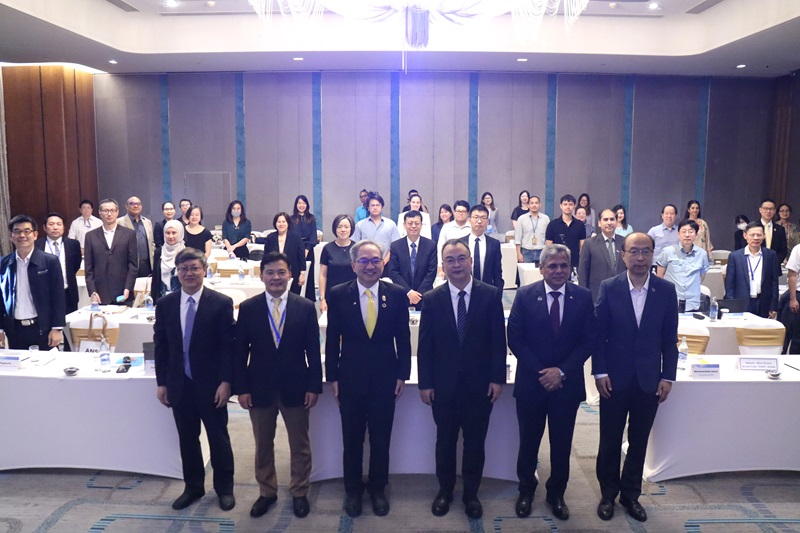On 12 December, the ANSO Scientific Seminar, co-hosted by the Alliance of National and International Science Organizations for the Belt and Road Regions (ANSO) and the National Science and Technology Development Agency of Thailand (NSTDA), was held in Bangkok, Thailand. The Seminar, themed “Emerging Technologies for Sustainable Development,” brought together scholars and professionals in the fields of science, technology, and sustainable development from Southeast Asia and beyond to explore the role of emerging technologies in addressing global environmental and social challenges. Scientists and experts from China, Thailand, Mongolia, Pakistan, Malaysia, Indonesia, Singapore, the Philippines, and Brunei were invited to give presentations. More than 50 participants attended the meeting.
In his opening remarks, Prof. Sukit Limpijumnong, President of ANSO and NSTDA, highlighted ANSO’s pivotal role in promoting international cooperation, knowledge sharing, and cross-border innovation to address pressing global challenges such as climate change, energy transitions, and sustainable resource management. He reaffirmed NSTDA’s commitment to fostering partnerships across Southeast Asia and with ANSO’s esteemed members.
Prof. HE Hongping, Vice President of the Chinese Academy of Sciences, warmly welcomed the participants and conveyed his sincere appreciation to NSTDA for co-organizing the event with ANSO. He underscored the urgent need for innovative solutions and enhanced international cooperation in scientific research and technological development. Additionally, he highlighted ANSO’s commitment to strengthening partnerships aligned with the United Nations Sustainable Development Goals (SDGs), particularly in the Belt and Road regions, and stressed the importance of collaborating with scientific communities in Thailand and other ASEAN countries.
During the keynote session, Prof. Limpijumnong delivered a comprehensive analysis of the significant role of technological innovation in global governance and economic transformation under the theme of emerging technologies for sustainable development. He also proposed initiatives to strengthen international technological cooperation.
Dr. Mohammad Nafees Zakaria, Executive Director of the Commission on Science and Technology for Sustainable Development in the South (COMSATS), addressed sustainable development from the perspective of developing countries. He discussed the role of technology in achieving sustainability and suggested that these countries adopt the “quadruple helix” (government, industry, academia, and civil society) model to develop a robust technological ecosystem and enhance their independent innovation capabilities.
Experts from leading institutions across Southeast and East Asia provided in-depth insights into the potential and applications of emerging technologies, focusing on areas such as artificial intelligence, carbon neutrality, clean energy, and synthetic biology. They emphasized the critical role of these technologies in addressing global environmental and climate change challenges while promoting sustainable social and economic development.
Dr. ZHANG Shizhuan, Deputy Executive Director of the ANSO Secretariat, presided over the panel discussion themed “Fostering STI Partnership in Southeast Asia and Beyond”. Representatives from the Bangkok Innovation Cooperation Center of CAS (CASICCB), the Nanotechnology Center of NSTDA (NANOTEC), the Malaysian High-Tech Industry and Government Alliance (MIGHT), the Mongolian Academy of Sciences (MAS), and other institutions participated in the dialogue. The participants commended ANSO’s dedication to fostering a global scientific and technological cooperation network that is open, inclusive, mutually beneficial, and focused on achieving win-win outcomes since its establishment in 2018.

